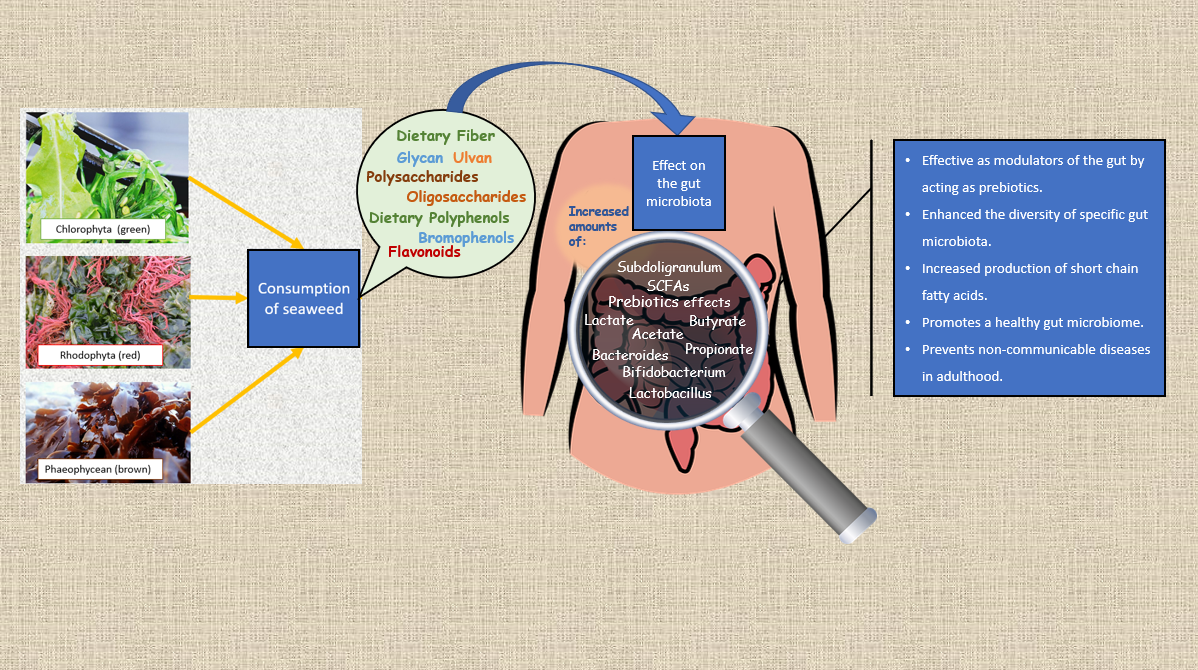Determining the effect of seaweed intake on the microbiota: a systematic review
DOI:
https://doi.org/10.31989/ffs.v3i6.1117Abstract
The human gut microbiota is dominated by bacteria, and the host dietary intake is one factor that can modulate the diversity of the gut microbiota to health or diseases. According to the FAO, there is an annual steady decline in agricultural practices of over one percent. There has been an anticipation that algae production will be increased to supplement the use of vegetables from terrestrial land. Seaweed is a sustainable crop that offers a rich source of bioactive compounds, yet its potential is not fully exploited. Seaweeds) has been part of the staple diets of East Asian populations for a long time, and their bioactive compounds have the potential to be functional foods. As such, it has become pertinent to explore how seaweed can modulate gut microbial composition and function to improve host health. The purpose of the study is to conduct an extensive literature review to ascertain what is known about the effects of seaweed on the microbiota. A systematic search was conducted using relevant databases to find studies looking at the effects of green seaweed on the microbiota. From all 8,951 search results, 7 publications were included in this systematic review. The result showed that seaweed has a prebiotic effect in vitro digestive systems and a significant increase in SCFA production. Studies indicated that oligosaccharides and polysaccharides gotten from seaweed can regulate intestinal metabolism and could manage inflammatory bowel disease. The results of this review showed that consumption of seaweed is beneficial to the host and the gut microbiota.

Keywords: Seaweed, algae, marine algae, flora, microbiota
Downloads
Published
Issue
Section
License
Copyright (c) 2023 FFS/Functional Food Science

This work is licensed under a Creative Commons Attribution-NonCommercial 4.0 International License.
Authors retain the copyright of their articles and grant the Functional Food Center (FFC) and its journals the right of first publication under the terms of the Creative Commons Attribution 4.0 International License.
This license permits unrestricted use, distribution, and reproduction in any medium, including commercial use, provided the original author(s) and source are properly credited. Authors may post and share their published work freely, provided that the original publication in this journal is acknowledged.
By submitting to this journal, authors confirm that their manuscripts are original, not under consideration elsewhere, and that they hold the necessary rights to grant this license. The Functional Food Center encourages open scientific exchange and allows derivative and extended works, provided attribution to the original publication is maintained.